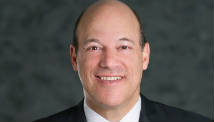Are we the altruistic generation? Do we care what happens to our grandchildren, and to their children? Or are we with Groucho Marx when he said: "Why should I care about future generations? What have they ever done for me?"
A new study of climate change lays out in detail why this matters. According to its author, Nigel Arnell of the University of Reading, UK, the unpalatable truth is that even rapid action now to curb greenhouse gas emissions would have only a "negligible effect by 2030, and the benefits in 2050 would remain small". The big dividend – cooler temperatures, fewer floods and droughts and better crop yields, compared to carrying on as we are – would only become clear by about 2100.
Arnell and colleagues used climate models to look at how different policies to curb greenhouse gases would affect temperature, sea levels, crop yields and the incidence of droughts and floods. Two findings emerged. The first is that lags in the climate system mean the real benefits of cutting emissions will only show up late this century. This, says Arnell, underlines that there is a lot of global warming "in the pipeline" that cannot now be prevented.
But the study also shows that tackling climate change early brings big rewards. Arnell compared a policy of letting emissions peak in 2016 and then cutting them by 2 per cent a year with one that delays the peak till 2030 and then cuts by 5 per cent a year. He found that both restricted warming in 2100 to about 2 °C, but the climate disruption over the next century would be much less with the early start. Coastal flooding from sea-level rise in particular would be much reduced. This, he told New Scientist, contradicts a common view that drastic action to curb warming should wait for renewable energy to become cheaper.
"Arnell has shown just how crucial the emissions pathway we take today will be for our children and grandchildren," said Dave Reay, geoscientist at the University of Edinburgh, UK. Bill McGuire of University College London agrees: "It shows taking effective action now is far better than putting it off until later."
It's a shame, then, that even if all goes well with UN negotiations, no global deal to bring down emissions will come into force until at least 2020. Our great-great-grandchildren will be cursing our delay.
Journal reference: Nature Climate Change, DOI: 10.1038/NCLIMATE1793
If you would like to reuse any content from New Scientist, either in print or online, please contact the syndication department first for permission. New Scientist does not own rights to photos, but there are a variety of licensing options available for use of articles and graphics we own the copyright to.
All comments should respect the New Scientist House Rules. If you think a particular comment breaks these rules then please use the "Report" link in that comment to report it to us.
If you are having a technical problem posting a comment, please contact technical support.












